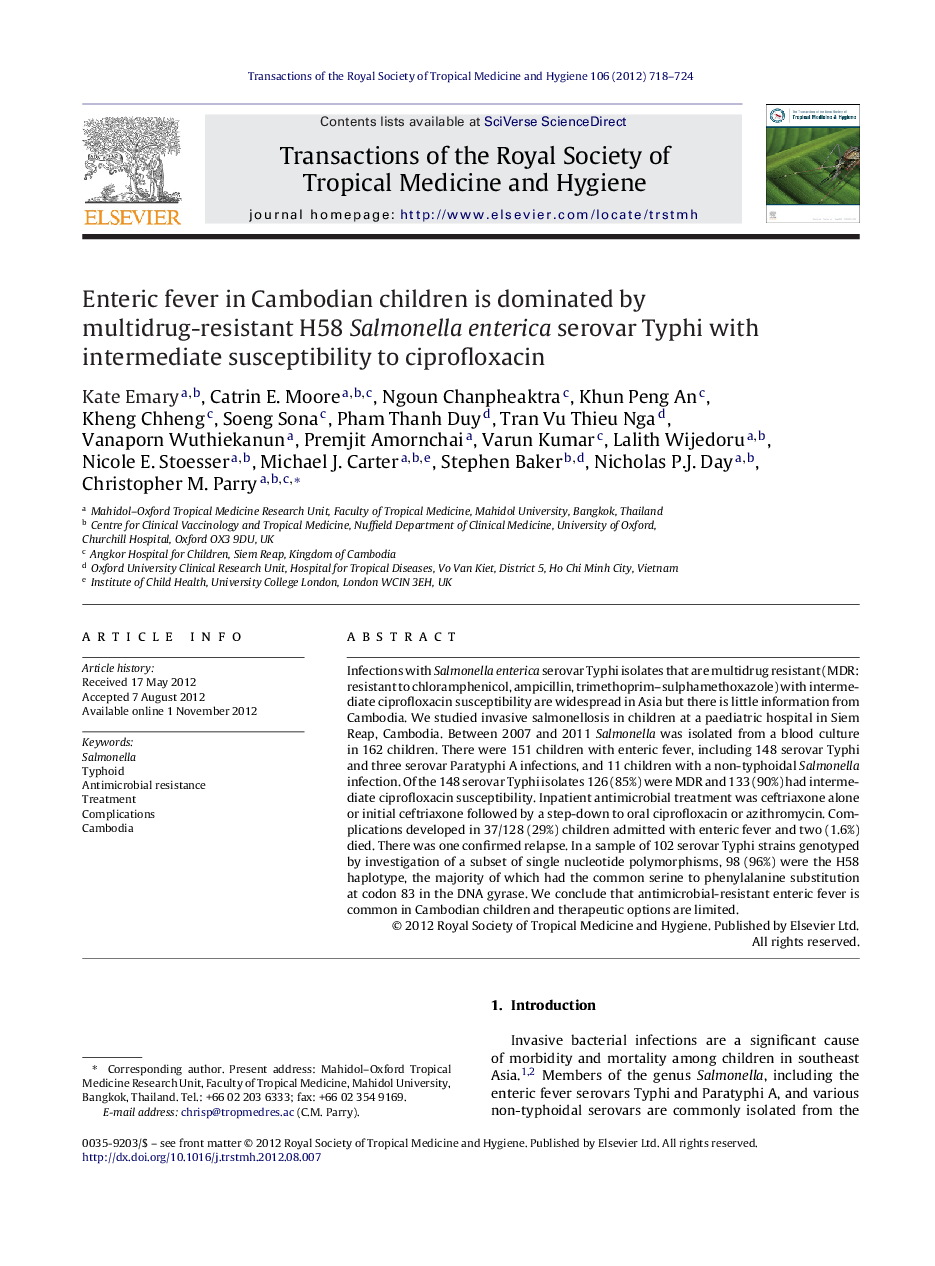| Article ID | Journal | Published Year | Pages | File Type |
|---|---|---|---|---|
| 6137220 | Transactions of the Royal Society of Tropical Medicine and Hygiene | 2012 | 7 Pages |
Abstract
Infections with Salmonella enterica serovar Typhi isolates that are multidrug resistant (MDR: resistant to chloramphenicol, ampicillin, trimethoprim-sulphamethoxazole) with intermediate ciprofloxacin susceptibility are widespread in Asia but there is little information from Cambodia. We studied invasive salmonellosis in children at a paediatric hospital in Siem Reap, Cambodia. Between 2007 and 2011 Salmonella was isolated from a blood culture in 162 children. There were 151 children with enteric fever, including 148 serovar Typhi and three serovar Paratyphi A infections, and 11 children with a non-typhoidal Salmonella infection. Of the 148 serovar Typhi isolates 126 (85%) were MDR and 133 (90%) had intermediate ciprofloxacin susceptibility. Inpatient antimicrobial treatment was ceftriaxone alone or initial ceftriaxone followed by a step-down to oral ciprofloxacin or azithromycin. Complications developed in 37/128 (29%) children admitted with enteric fever and two (1.6%) died. There was one confirmed relapse. In a sample of 102 serovar Typhi strains genotyped by investigation of a subset of single nucleotide polymorphisms, 98 (96%) were the H58 haplotype, the majority of which had the common serine to phenylalanine substitution at codon 83 in the DNA gyrase. We conclude that antimicrobial-resistant enteric fever is common in Cambodian children and therapeutic options are limited.
Related Topics
Life Sciences
Immunology and Microbiology
Applied Microbiology and Biotechnology
Authors
Kate Emary, Catrin E. Moore, Ngoun Chanpheaktra, Khun Peng An, Kheng Chheng, Soeng Sona, Pham Thanh Duy, Tran Vu Thieu Nga, Vanaporn Wuthiekanun, Premjit Amornchai, Varun Kumar, Lalith Wijedoru, Nicole E. Stoesser, Michael J. Carter, Stephen Baker,
